Filter by
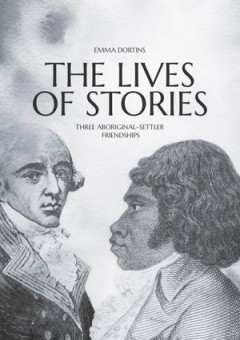
The Lives of Stories: Three Aboriginal-Settler Friendships
The Lives of Stories traces three stories of Aboriginal–settler friendships that intersect with the ways in which Australians remember founding national stories, build narratives for cultural revival, and work on reconciliation and self-determination. These three stories, which are still being told with creativity and commitment by storytellers today, are the story of James Morrill’s adopti…
- Edition
- -
- ISBN/ISSN
- 9781760462406
- Collation
- -
- Series Title
- -
- Call Number
- 994 DOR l
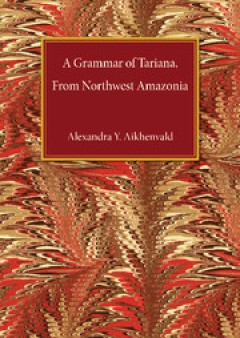
A Grammar of Tariana, from Northwest Amazonia
This is a comprehensive reference grammar of Tariana, an endangered Arawak language from a remote region in the northwest Amazonian jungle. Its speakers traditionally marry someone speaking a different language, and as a result most people are fluent in five or six languages. Because of this rampant multilingualism, Tariana combines a number of features inherited from the protolanguage with pro…
- Edition
- -
- ISBN/ISSN
- 9781107050952
- Collation
- -
- Series Title
- -
- Call Number
- -

A Government Out of Sight The Mystery of National Authority in Nineteenth-Ce…
While it is obvious that America's state and local governments were consistently active during the nineteenth century, a period dominated by laissez-faire, political historians of twentieth-century America have assumed that the national government did very little during this period. A Government Out of Sight challenges this premise, chronicling the ways in which the national government interven…
- Edition
- -
- ISBN/ISSN
- 9780511576324
- Collation
- -
- Series Title
- -
- Call Number
- -

A Feminist Critique of Police Stops
A Feminist Critique of Police Stops examines the parallels between stop-and-frisk policing and sexual harassment. An expert whose writing, teaching and community outreach centers on the Constitution's limits on police power, Howard Law Professor Josephine Ross, argues that our constitutional rights are a mirage. In reality, we can't say no when police seek to question or search us. Building on …
- Edition
- -
- ISBN/ISSN
- 9781108697477
- Collation
- -
- Series Title
- -
- Call Number
- -
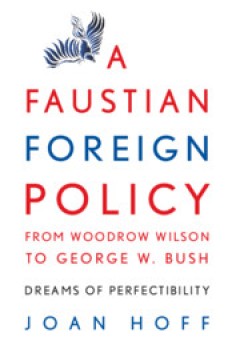
A Faustian Foreign Policy from Woodrow Wilson to George W. Bush
A Faustian Foreign Policy from Woodrow Wilson to George W. Bush critiques U.S. foreign policy during this period by showing how moralistic diplomacy has increasingly assumed Faustian overtones, especially during the Cold War and following September 11. The ideological components of American diplomacy, originating in the late 18th and 19th centuries, evolved through the 20th century as U.S. econ…
- Edition
- -
- ISBN/ISSN
- 9780511511592
- Collation
- -
- Series Title
- -
- Call Number
- -

A Description of Patagonia, and the Adjoining Parts of South America
Thomas Falkner (1707–84), one-time pupil of both Richard Mead and Isaac Newton, was an English Jesuit missionary who lived for nearly forty years in South America until 1767, when he returned to England following the Jesuits' expulsion from Córdoba. Originally published in 1774 in the hope that it 'might be of some public utility, and might also afford some amusement to the curious', this is…
- Edition
- -
- ISBN/ISSN
- 9781139775472
- Collation
- -
- Series Title
- Cambridge Library Collection - Latin American Studies
- Call Number
- -
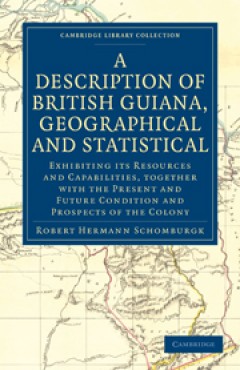
A Description of British Guiana, Geographical and Statistical
Sir Robert Hermann Schomburgk (1804–1865) was a German-born surveyor and traveller. In 1835–1839 he explored British Guiana for the Royal Geographical Society. In 1840 he was appointed to define its boundaries with Brazil, as Brazilian encroachments were wiping out native tribes. His report to the Colonial Office was published as A Description of British Guiana, Geographical and Statistical…
- Edition
- -
- ISBN/ISSN
- 9780511783586
- Collation
- -
- Series Title
- Cambridge Library Collection - Latin American Studies
- Call Number
- -

A Debt Against the Living
Thomas Jefferson famously wrote that the earth belongs to the living. His letter to James Madison is often quoted for the proposition that we should not be bound to the 'dead hand of the past', suggesting that the Constitution should instead be interpreted as a living, breathing document. Less well-known is Madison's response, in which he said the improvements made by the dead - including the U…
- Edition
- -
- ISBN/ISSN
- 9781108304221
- Collation
- 9781108304221
- Series Title
- -
- Call Number
- -
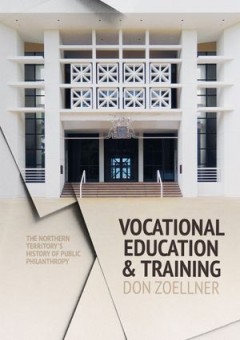
Vocational Education and Training The Northern Territory’s history of publ…
This book represents the first consolidated history of vocational education and training in the Northern Territory. Not only does the story present a chronological account of events, people and institutions, it also offers an explanation of how the system actually works and this has application well beyond the Territory. The mix of historical accounting and operational analysis comes from a uni…
- Edition
- -
- ISBN/ISSN
- 9781760460990
- Collation
- -
- Series Title
- -
- Call Number
- -
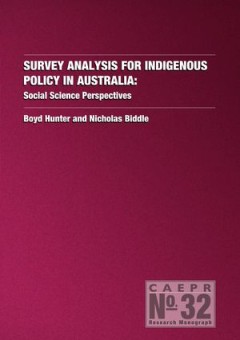
Survey Analysis for Indigenous Policy in Australia: Social Sciences Perspectives
Indigenous policy is a complex domain motivated by a range of social, cultural, political and economic issues. The Council of Australian Governments ‘closing
- Edition
- -
- ISBN/ISSN
- 9781922144188
- Collation
- -
- Series Title
- -
- Call Number
- 301 HUN s
 Computer Science, Information & General Works
Computer Science, Information & General Works  Philosophy & Psychology
Philosophy & Psychology  Religion
Religion  Social Sciences
Social Sciences  Language
Language  Pure Science
Pure Science  Applied Sciences
Applied Sciences  Art & Recreation
Art & Recreation  Literature
Literature  History & Geography
History & Geography